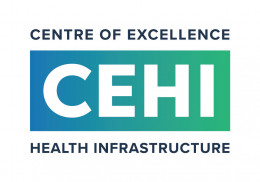
Your chance to make a real difference to health infrastructure in Aotearoa.
CEHI offers an exciting opportunity for professionals from health, construction and engineering backgrounds to train and upskill to become highly capable and knowledgeable Health Infrastructure Project Managers.
Whether you're an experienced professional or a recent graduate, CEHI offers a range of opportunities to help you grow and develop.
CEHI Traineeship Programme – approximately 20 months. Study a Master of Engineering Project Management, Health Projects specialisation (MEPM-Health) at the University of Auckland while doing a part-time traineeship with CEHI.
CEHI Graduate Programme – two years. If you are a recent graduate, join CEHI full-time and be supported and trained by experienced Project Managers at Te Whatu Ora Health New Zealand.
CEHI trainees and graduates will be paid a set salary. You may also be eligible for a study scholarship.
"There really is no better place to kick-start a health project management career and start making every day better in our communities," says Allan Johns, Director of Facilities & Development at Te Whatu Ora Te Toka Tumai Auckland. "The aim is to provide our CEHI trainees and graduates with a well-rounded work experience in health infrastructure – one where they are supported, nurtured and challenged and able to use their health project management studies in a live health environment. We want to see people thrive and ultimately pursue careers in an industry that ticks all the buttons when it comes to job satisfaction and making a difference."